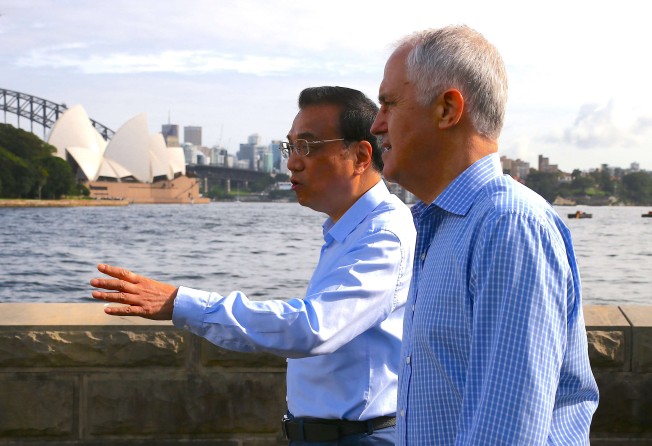Australia should move forward on extradition treaty with China
There may be some genuine fears over human rights but these can be overcome and a pact would be in the best interests of both countries

Extradition treaties between countries are complementary means of upholding the law, by providing a legal process for having criminal convicts or suspects returned to face justice. To be effective they have to accommodate differences in political and justice systems. Otherwise a country would be limited in the number of agreements it could enter into and risk becoming a haven for fugitives from the law. That has particular relevance to international terrorism, transnational crime and drug trafficking. Hence the extradition agreement signed between Australia and China, two countries legally and politically poles apart, in 2007.
It was and remains a sensitive issue in Australia and has never been ratified by parliament. As a result, Australia has become a destination of choice for mainlanders on the run from the authorities. That seemed about to change, with the government on the threshold of seeking parliamentary approval of ratification, when the opposition Labor Party was joined by some rebel government lawmakers in withholding support because of human rights concerns, ensuring rejection and forcing a government backdown.
Regrettably, convincing reassurances from Foreign Minister Julie Bishop that the government could exercise discretion to refuse to extradite anyone at risk of political persecution, inhuman treatment or the possibility of the death penalty – safeguards to be found in agreements with 39 other countries – fell on deaf ears. Bishop has not ruled out a review of the extradition act that might clear the way forward. Her strong defence of the agreement, and willingness to discuss the issues with the Labor Party, are a welcome reaffirmation of commitment to good ties with China in the national interest.
Coincidentally, opponents of ratification got some mileage out of the plight of Chinese passport holder Professor Feng Chongyi, head of Chinese studies at a Sydney university, who has permanent Australian residence. He was barred from returning to Sydney from a trip to the mainland to research the crackdown on human rights activists, during an investigation over national security concerns. A Chinese foreign ministry spokesperson said that as a Chinese citizen, Feng was obliged to cooperate in the probe. He was finally allowed to leave at the weekend but, considering his nationality/residence status, more transparency could have allayed concerns. Human rights may be a sensitive topic. But given Beijing’s emphasis on the importance of the rule of law it was unclear whether Feng had done something unwelcome, or illegal. We trust this unfortunate incident has no bearing on attempts to forge consensus in Canberra on an extradition treaty, in the interests of both countries.